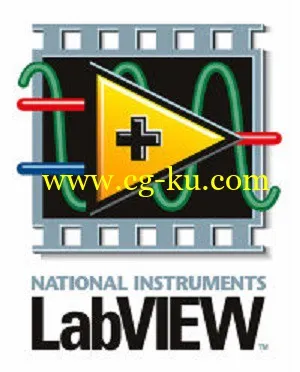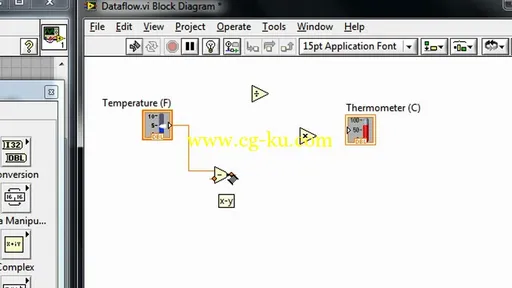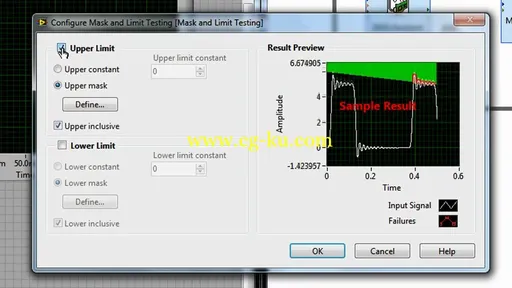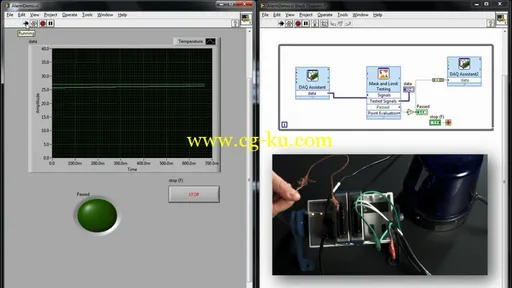
National Instruments - Getting Started with LabVIEW (2010)
English | MP4 | 1280x720 | AVC 1692 Kbps 23.976 fps | AAC 125 Kbps 44.1 khz | 3 hours | 1.2 GB
Genre: Video Training
Are you new to LabVIEW? Join our Applications Engineers, on a quick 'how to get started' tour. to make your first steps in understanding the great potential of LabVIEW easier. See best practices for starting your LabVIEW application development quickly and how you can leverage NI resources to shorten your development time.
LabVIEW software is ideal for any measurement or control system, and the heart of the NI design platform. Integrating all the tools that engineers and scientists need to build a wide range of applications in dramatically less time, LabVIEW is a development environment for problem solving, accelerated productivity, and continual innovation.
content:
1. Writing Your First LabVIEW Program
2. Data Flow Programming Basics
3. LabVIEW Data Types
4. Creating Sub VIs in NI LabVIEW
5. Using Charts and Graphs in NI LabVIEW
6. Using Debugging Tools in NI LabVIEW
7. Using the Tools Palette in NI LabVIEW
8. Using Arrays in NI LabVIEW
9. Using LabVIEW Case Structures
10. Using Loops in LabVIEW
11. Taking a Measurement with Your Computer
12. Building a PID Controller with Your Computer
13. Using Counters and Digital I/O on USB Data Acquisition Devices
14. Logging Data with a USB Data Acquisition Device
15. Configuring a Start Trigger on a USB Data Acquisition Device
16. Monitoring and Alarm Generation with Your Computer
17. Real-time Signal Processing and Analysis on Measurement Data
18. Automatically Generating Reports for Measurement Data
19. Building a Graphical User Interface (GUI) for Data Acquisition Applications
20. Generating a Signal with Your Computer
21. Synchronizing Multiple Data Acquisition Devices
22. Automatic Code Generation with NI-DAQmx and NI LabVIEW
23. Programming Data Acquisition Applications with NI-DAQmx Functions
24. How to Measure a Thermocouple
25. How to Measure a Pressure Transducer
26. How to Measure a Load Cell
27. Kevin Bisking explains it all...well, at least the part that



发布日期: 2013-10-12